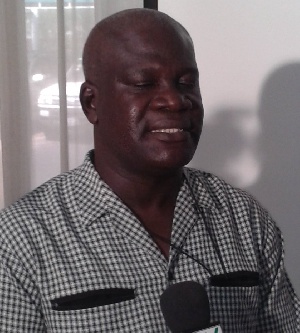Mr. Solomon S. A Kotei, General Secretary of the Industrial and Commercial Workers’ Union (ICU), has observed that one of the effective and surest ways to fight Corruption in the country is for the State Machinery to strengthen anti-corruption institutions, and allow them to work.
Mr. Kotei who made the observation in an interaction with the media, on how best the social canker of Corruption could be eradicated from society, the general secretary was of the view that by allowing such institutions to work, the whip could be easily cracked on those found culpable to have indulged in corrupt practices.
According to Mr. Kotei, Osagyefo Dr. Kwame Nkrumah believed the social canker could be defeated often repeating his quote: “The only way to fight Corruption, is to talk about it, time and again, and show how as a country, we are losing, when just a handful are taking advantage of the pool of resources that belong to all of us.”
The ICU General Secretary also underscored the need to strengthen the Whistleblowers’ Act adding volunteers of vital information that expose wrongdoers, must be adequately rewarded, so that others could willingly volunteer information on other misdeeds.
Mr. Kotei, who is also a Minister of the Gospel, recalled the Citizens’ Vetting Committee indicating the practice should be revisited, so that the affluent in society whose wealth or properties were illegally acquired, could be made to face the full rigours of the law.
Touching on the current scandal at the National Service Secretariat, the ICU General Secretary said investigations into the embezzlement should be extended to the banks, where the withdrawals were made suggesting collaborators could be apprehended as well.
He said those found to be involved in the scandal, should be arraigned before courts of competence jurisdiction, such as fast track high courts, where, in his view, undue delays in proceedings could be avoided, so that the speedy trial of the offenders and their subsequent punishment, could serve as a deterrent to others.
Politics of Thursday, 23 October 2014
Source: GNA
Corruption becoming pervasive - ICU Gen. Sec.
Entertainment












